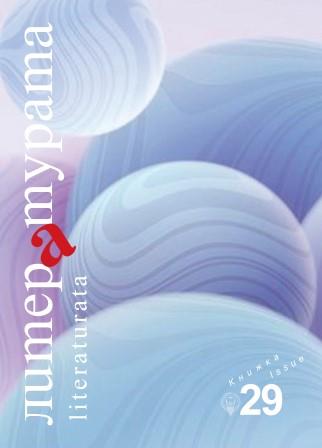Диалектиката на „хипер“. От модернизъм към постмодернизъм
The Dialectics of Hyper. From Modernism to Postmodernism
Author(s): Michael EpsteinSubject(s): Philosophy, Language and Literature Studies, Theoretical Linguistics, Special Branches of Philosophy, Structuralism and Post-Structuralism, Philosophy of Science, Philosophy of Language, Philology, Philosophy of History, Sociology of Literature
Published by: Софийски университет »Св. Климент Охридски«
Keywords: hyper; modernism; postmodernism; Russia
Summary/Abstract: The text is an attempt to analyze „the modernist premises of postmodernism in light of postmodern perspectives on modernism” or, put more simply, the interdependence of these two historical phenomena. The argument focuses on a variety of modernist approaches: in physics (quantum mechanics), in literary theory (new criticism), in philosophy (existentialism), across psychoanalytic theories and practices (sexual revolution), and across Soviet social and intellectual trends, such as “collectivism” and “materialism.” All these trends manifest the phenomenon of “hyper” in its first stage, which is constituted by the revolutionary overthrow of the “classic” paradigm and an assertion of a “true, essential reality,” or “superreality.” In the second stage, the same phenomena are realized and exposed as “pseudo-realities” thus marking the transformation of “hyper” itself, its inevitable transition from the modernist to the postmodernist stage, from “super” to “pseudo.” The author argues that the development of the twentieth-century cultural paradigm depends on a necessary connection between these two stages of the “super” and the “pseudo.” The concept of “hyper” highlights not only the lines of continuity between modernism and postmodernism, but also the parallel developments in Russian and Western postmodernisms as reactions to and revisions of a common “revolutionary” legacy.
Journal: Литературата
- Issue Year: XVI/2022
- Issue No: 29
- Page Range: 11-44
- Page Count: 34
- Language: Bulgarian
- Content File-PDF

